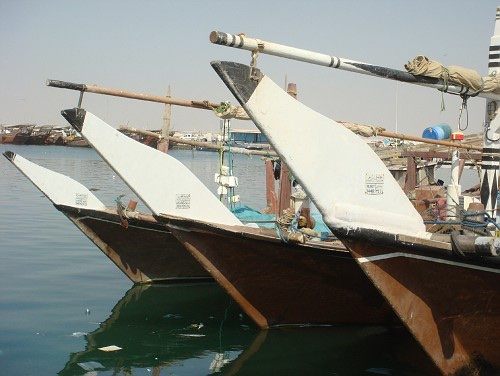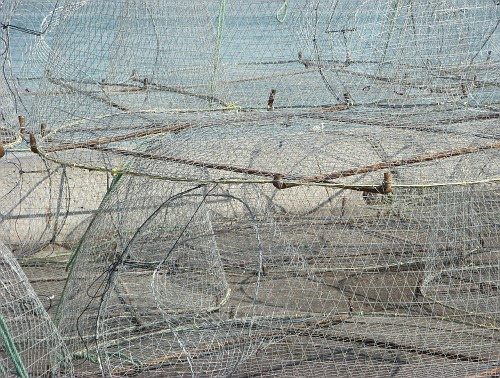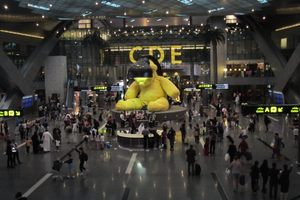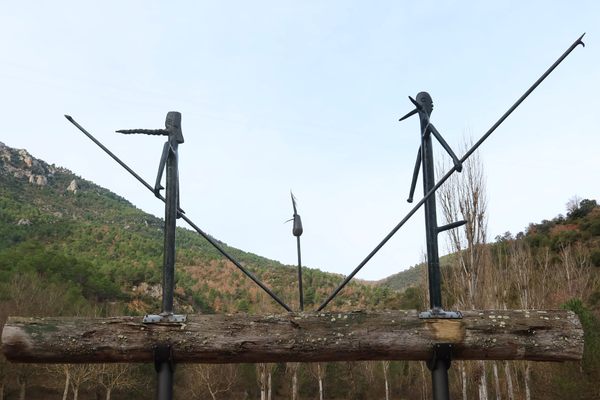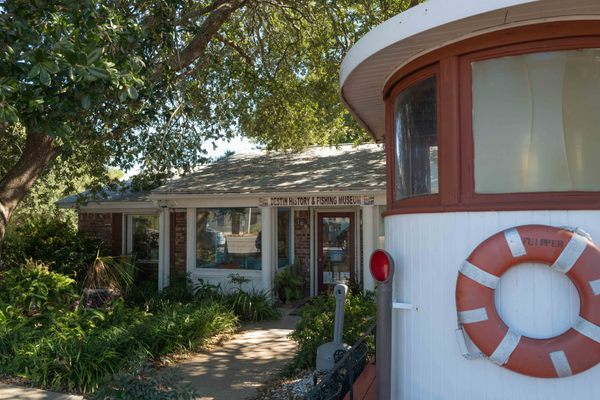About
Visit this harbor in the morning, and you’ll see hundreds of dhows neatly moored in rows without the hassle of hawkers trying to lure people on a dhow cruise. If you beat the crowds, you’ll get a glimpse of real harbor life, with laborers busy maintaining the vessels and others unloading the previous night's catch.
Al Wakrah is city about a 10-minute drive from Doha. A 1903 document identified it as the northernmost point of the Pirate Coast—a stretch of land named after the marauding activities of the people living along the coast. At the time, Al Wakrah was a small fishing and pearling village that, according to other official records, harbored between 250 and 300 boats between 1920 and 1925.
But you’d be hard-pressed to find evidence of intrepid pearl divers and swooping swashbucklers in today’s Al Wakrah—coming across unassuming sailors is a much better bet. Yet, now, as in the past, life in Al Wakrah revolves around the harbor, which was renovated and reopened to the public in 2017. This is a prime location for observing dhows at close range.
Dhows are sailing vessels widely used throughout the Indian Ocean. Variations exist according to their country of origin, but a signature feature of all dhows is that they are made of wooden planks stitched together. Traditionally, dhows weigh between three and five tonnes and require a crew of 12 to 30 sailors. Traditional dhows from Qatar cover the whole tonnage spectrum, tend to be double masted, and use triangular sails. However, most dhows at Al Wakrah Harbour are motorized.
Some dhows are equipped for fishing, while others offer cruises to tourists. Regardless of their different duties, all dhows display traditional designs.
Related Tags
Know Before You Go
Walking around the harbor is free. The harbor is a 25-30-minute drive from Doha, if you have your own car.
Published
September 25, 2018




